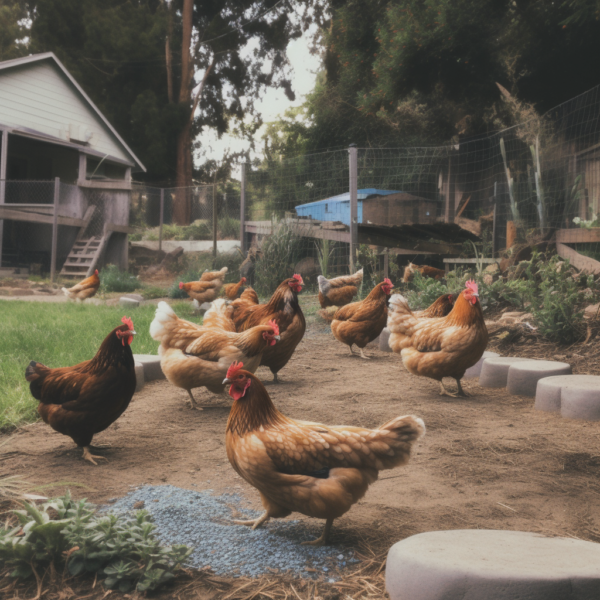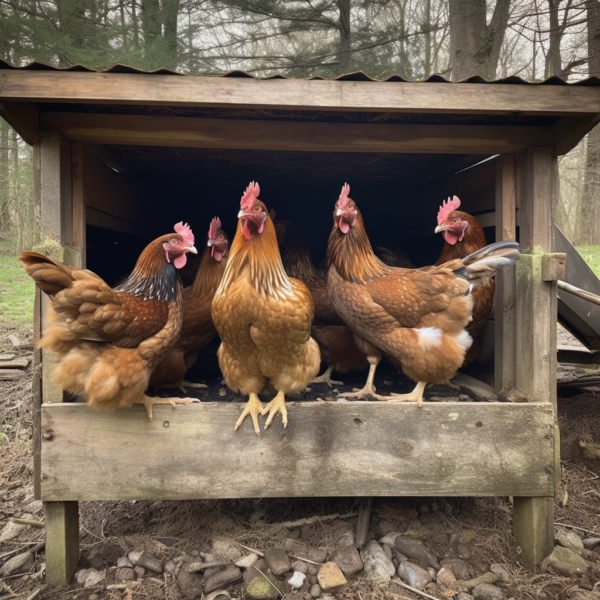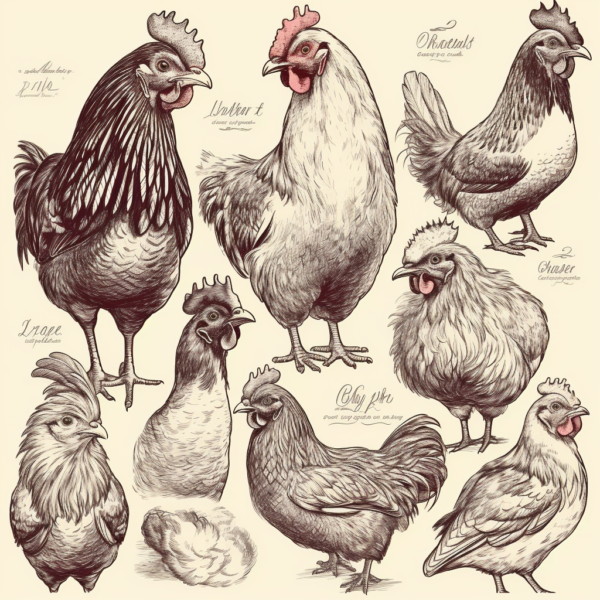Backyard chicken keeping has become popular in recent years with many cities allowing residents to raise chickens within city limits. Domestic chickens are great pets and can provide you with fresh eggs, pest control, and a natural fertilizer for your garden. However, owning chickens requires commitment, knowledge, and adequate space for them to thrive. Whether you are new to chicken keeping or looking to expand your flock, this blog post will give you everything you need to know before owning domestic chickens within city limits.
Chicken Nutrition Requirements
Chickens require a balanced diet to lay eggs, grow, and maintain their health. The best diet for chickens includes a mixture of chicken feed, fresh vegetables, fruits, grains, and clean water. Chicken feed should be the primary source of their diet, and it should contain enough protein, vitamins, and minerals for their age and activity level. Fresh vegetables and fruits can be given as a treat and provide important nutrients. Chickens also require calcium for strong eggshells, which can be provided in the form of oyster shells or crushed eggshells. For all of your chicken feed needs, visit our chicken section at Braxton's.
Space Required for Chickens

Chickens need adequate space to move around, exercise, and socialize. A good rule of thumb is to provide at least four square feet of indoor coop space per chicken and ten square feet of outdoor run space per chicken. If you want to keep multiple chickens, it's essential to ensure your coop and run are large enough to accommodate them. Chickens also need a coop that is warm, dry, and well-ventilated. The coop should be cleaned regularly to prevent the buildup of manure and bacteria.
Chicken Coop Maintenance

Maintaining a clean coop is critical for the health and well-being of your chickens. This involves regular cleaning of the coop and nesting boxes, providing clean water and food, and ensuring proper ventilation. Chickens also need a comfortable and safe space to lay their eggs. Nesting boxes should be lined with clean bedding, and the eggs should be collected daily to prevent them from breaking or getting dirty. Coop maintenance should also include predator-proofing, as chickens are vulnerable to attacks from predators like raccoons, foxes, and dogs. Let's look at some bedding options and discuss pros and cons of each one.
Straw
Using straw as bedding is like getting back to basics. Before wood chippers and packaged shavings from the local supply store, farmers used straw.
Pros:
- Accessible – Straw is easy to find in most areas. Straw can be found by searching classifieds or asking local farmers if they can spare enough to sell to a chicken fancier.
- Fun – Chickens love to scratch and play in straw.
- Warm – Since straw is hollow, it acts as an insulator and can help keep chickens warm in cold climates.
Cons:
- Lacks Absorption – Straw is not very absorbent, and it needs to be removed and replaced often.
- Difficult to Clean – It can be difficult to clean due to knotting, matting, and lack of clumping.
- Stinky – Odors are more prevalent because that it is not very absorbent.
- Pesticides – Pesticides and chickens are not a safe mix. Many farmers spray their straw with pesticides.
Shavings
Shavings are a favorite among chicken owners, and this type of bedding comes in different forms of wood. The most common kinds of shavings are Pine and Cedar.
Pros:
- Excellent Absorption
- Easily attainable
- Easy to Clean – Shavings can be fluffed and forked up much easier than straw bedding.
- Great Odor Control – Because shavings are typically more absorbent than straw, it is also better at controlling odors.
Cons:
- Cost – Depending upon coop size, using shavings can become somewhat pricey.
- Crop impaction – Since chickens love to scratch and peck, they may decide to ingest the shavings known to cause crop impaction.
- Can be dusty – The smaller the shavings, the more likely they are to cause respiratory issues in a flock.
Sand
Sand for chicken bedding is a time-consuming kind of litter to use, but those who use it seem to prefer this method above all others. To prevent this from happening, the litter would have to be quite deep and turned often. Some chicken owners chose to remove the clumps of feces as though they were cleaning a litter box; this is where the time commitment comes into play.
Pros:
- Clumping Litter – Soiled sand litter is easy to see and clean when needed.
- Dust baths – Chooks will love having 24/7 access to the spa.
- Odor Control – Most people who use this method, say that it has great odor control.
Cons:
- Does Not Compost – Sand does not compost. Thus it would be impossible to use as fertilizer.
- Less Cushioning – Chickens jumping from their roosts will have a rough landing.
- Dusty – Sand can be dusty, especially when dry. This could lead to respiratory issues.
- Lack of Odor Control – People who don’t use this method say it smells.
Best Breeds for Beginners
When choosing breeds for your backyard flock, it's essential to consider their temperament, egg-laying capacity, and ability to tolerate local weather conditions. Some of the best chicken breeds for beginners include:

Rhode Island Red: A docile and friendly breed that lays around 5-7 eggs per week.
Plymouth Rock: A hardy and easy-to-keep breed that lays about 4-5 eggs per week.
Buff Orpington: A calm and gentle breed that's great for families with children. They lay around 4-5 eggs per week.
Australorp: An excellent egg layer that can produce up to 6-7 eggs per week.
It is also important to know, you should have a minimum of 3-4 chickens to form a backyard group. Chickens are social animals and need companionship to stay happy and healthy. Keeping only one chicken can lead to loneliness and stress, which can affect their egg production, health, and behavior. Having a small group of chickens is ideal because they will establish a pecking order within the group, which helps them maintain social harmony.
Owning domestic chickens can be a rewarding experience. However, it requires commitment, knowledge, and adequate space to meet their basic needs. Understanding their nutritional requirements, providing enough space, maintaining a clean coop, and choosing the right breed can help ensure that your backyard flock thrives. By following these tips, you'll be well on your way to becoming a successful chicken keeper in your city.

